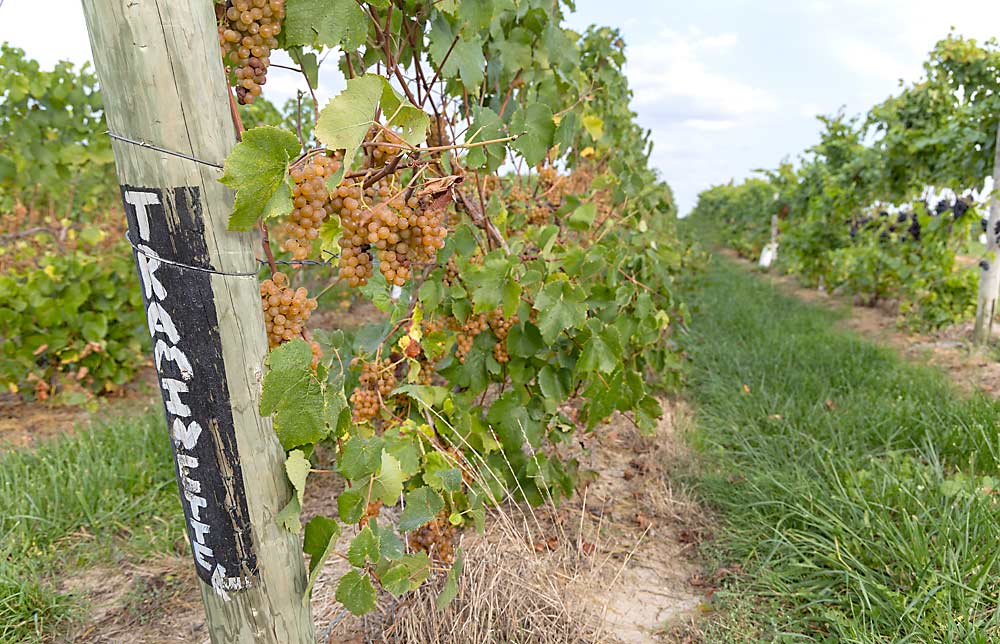
Expanding from a vineyard to a vertically integrated winery is a leap of faith.
For grower Dan Nitz, his daughters inspired him to make the jump.
Nitz owns Arrowhead Vineyards, a large grape-growing operation in Southwest Michigan. His family now owns Chill Hill, too, a small but growing winery and brand label.
As a fifth-generation grape grower, Nitz always dreamed of starting his own winery, but just growing the fruit consumed all his time and energy. When his oldest daughter, Ashley, expressed an interest in starting a winery, he saw the opportunity to make the fantasy a family reality. They’ve been building a new business together for the past four years in the village of Baroda, situated in Southwest Michigan’s rolling hills.
In early October, Nitz, 53, stood on a stretch of cleared land near Baroda. On a slight rise to the east were neat rows of vines, just a small portion of his 350 acres of wine grapes. The Traminette, Garnacha, Vidal Blanc, Riesling, Chambourcin, Pinot Gris and other vines trained to the vertical shoot position system — including a few rows of cold-hardy hybrids such as Marquette and Itasca — were loaded with ripe grape clusters.
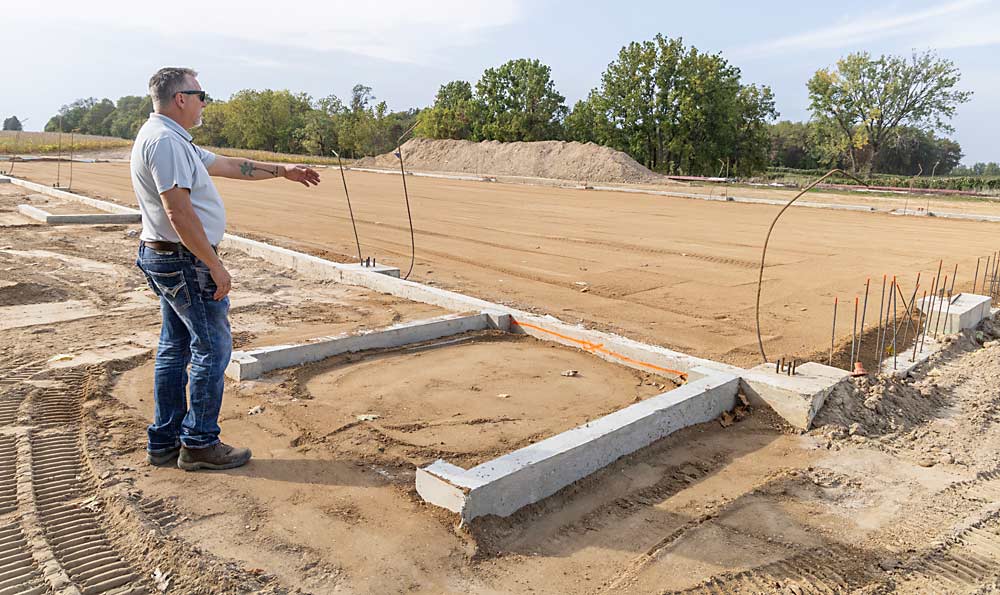
Right beside him lay a concrete foundation, the beginnings of a 12,800-square-foot winemaking facility and tasting room. When it’s finished, probably in late 2024, it will be the newest home for Chill Hill, the winery his family founded in 2019.
The Nitz family transitioned from juice grapes to wine grapes in the 1970s. They first planted hybrid varieties, and when those survived Michigan’s cold weather, they “got brave with vinifera,” he said. For the past few decades, they’ve grown nothing but wine grapes, selling them to Michigan wineries.
Their own winery journey began by creating their own label and leasing a storefront in downtown Baroda, not far from Arrowhead Vineyards. Ashley runs the winery (Dan’s mother, Norma, is a silent partner). Ashley studied winemaking at Lake Michigan College, but her passion is more on the aesthetic side, designing menus and wine labels and coming up with fun ideas for events. She also learned the ins and outs of running a business — including hiring and bookkeeping.
The current space can host indoor events — bridal and baby showers, bus tours, bachelorette parties, trivia nights — but what they really want is outdoor space, as well as their own winemaking capacity, Ashley said.
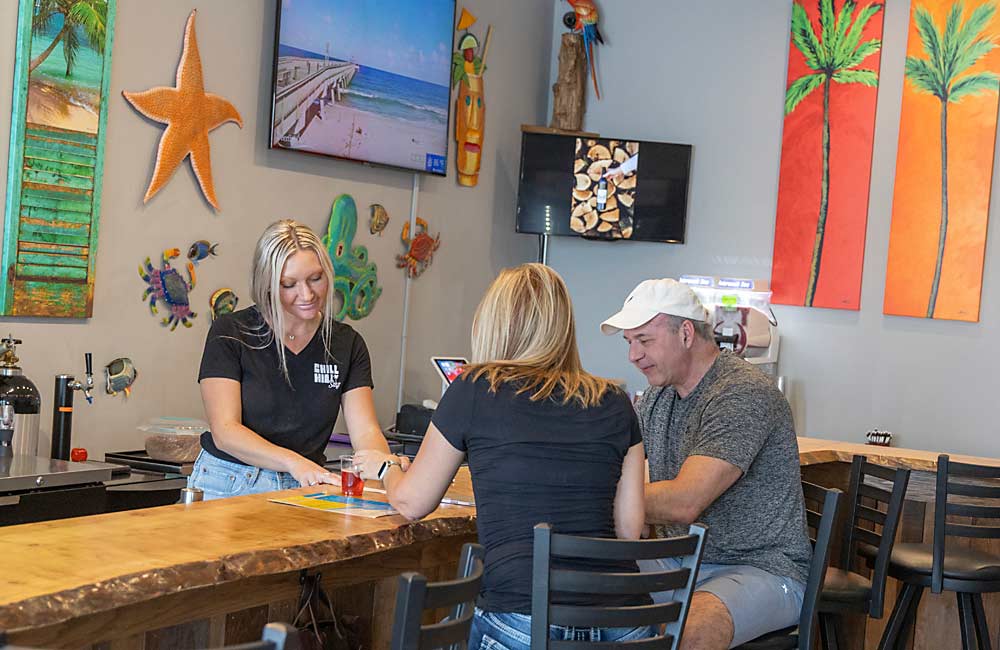
They use their own grapes in Chill Hill wines, which are currently made with help from other winemakers. They sell wines direct from the store and via distribution channels. Ice wines are one of their specialties. Southwest Michigan straddles the 42nd parallel, the “sweet spot for ice wine,” Dan said.
When finished, the new facility will replace the current tasting room. Its location — a mile or two outside of downtown Baroda — will give them plenty of outdoor space. With a pond nearby and vineyards in the background, it’s a picturesque spot for weddings, vineyard tours, wine tastings, parties, concerts, festivals and any other outdoor gathering they can think of. They planted oak and maple trees to provide shade. A soybean field will be planted with Sauvignon Blanc. Long-term, they plan to build a separate, three-story building with a view of the dunes on the Lake Michigan shore a few miles to the west.
Another long-term goal is to hire a full-time winemaker and expand Chill Hill’s labels to appeal to a wider swath of wine drinkers. About 5 percent of Arrowhead grapes go into Chill Hill wines now, and they plan to boost that portion to 20 percent. That will still leave them plenty of grapes to sell to other wineries, Dan said.
Many growers in Southwest Michigan have made the transition from growing grapes to also making wine and opening a tasting room, but the Nitz family is doing it on a larger scale than normal, said Michigan State University viticulture specialist Mike Reinke, who’s based in the region.
“They’re not planning your traditional quiet — or even casual — tasting room,” Reinke said. “I think it will fill an interesting position in the industry.”
While describing his family’s plans for the new building, Dan was joined by his younger daughter, Katelynn, who’s studying sales and marketing at Lake Michigan College and plans to join the family business full-time when she’s done.
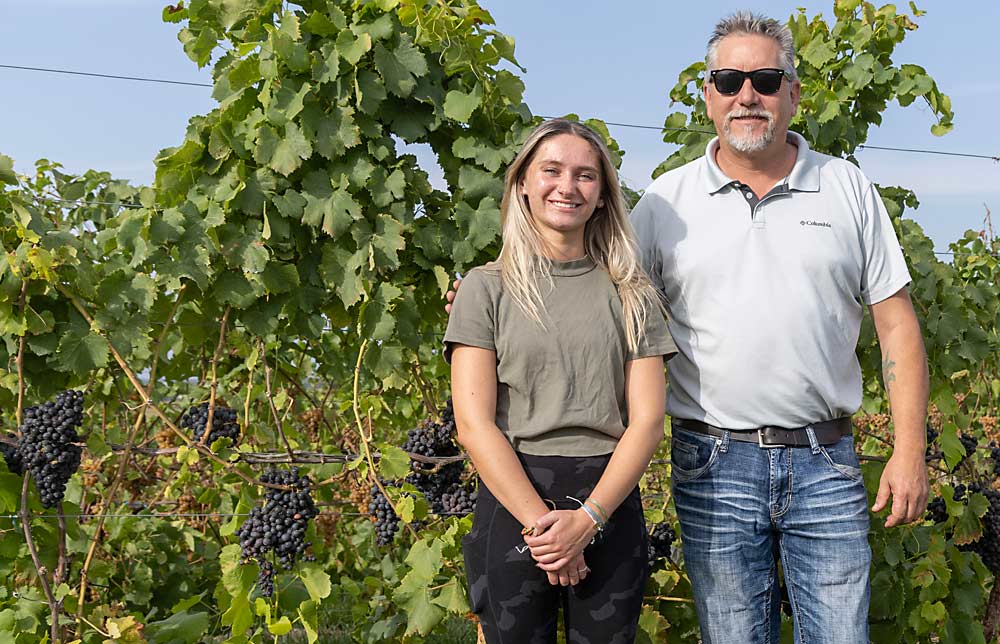
The new winery filled much of his mind that October day, but he still had grapes to pick. His harvest crew was prepping machines for the evening harvest. The 2023 season was “nice and dry” to that point, and fruit quality and size were looking pretty good, he said.
After harvest, Dan plans to lay straw to protect his vine grafts from winter kill. He skipped the task in 2019 to save money, but a nasty freeze that winter killed about a third of his vines — a much bigger financial hit than putting down straw. He doesn’t skip that step anymore.
Adding a winery and the next generation are intertwined goals for the business, as far as he’s concerned.
“Building up retail sales will help the family business stay sustainable, so we can keep passing the torch to the next generation,” he said.
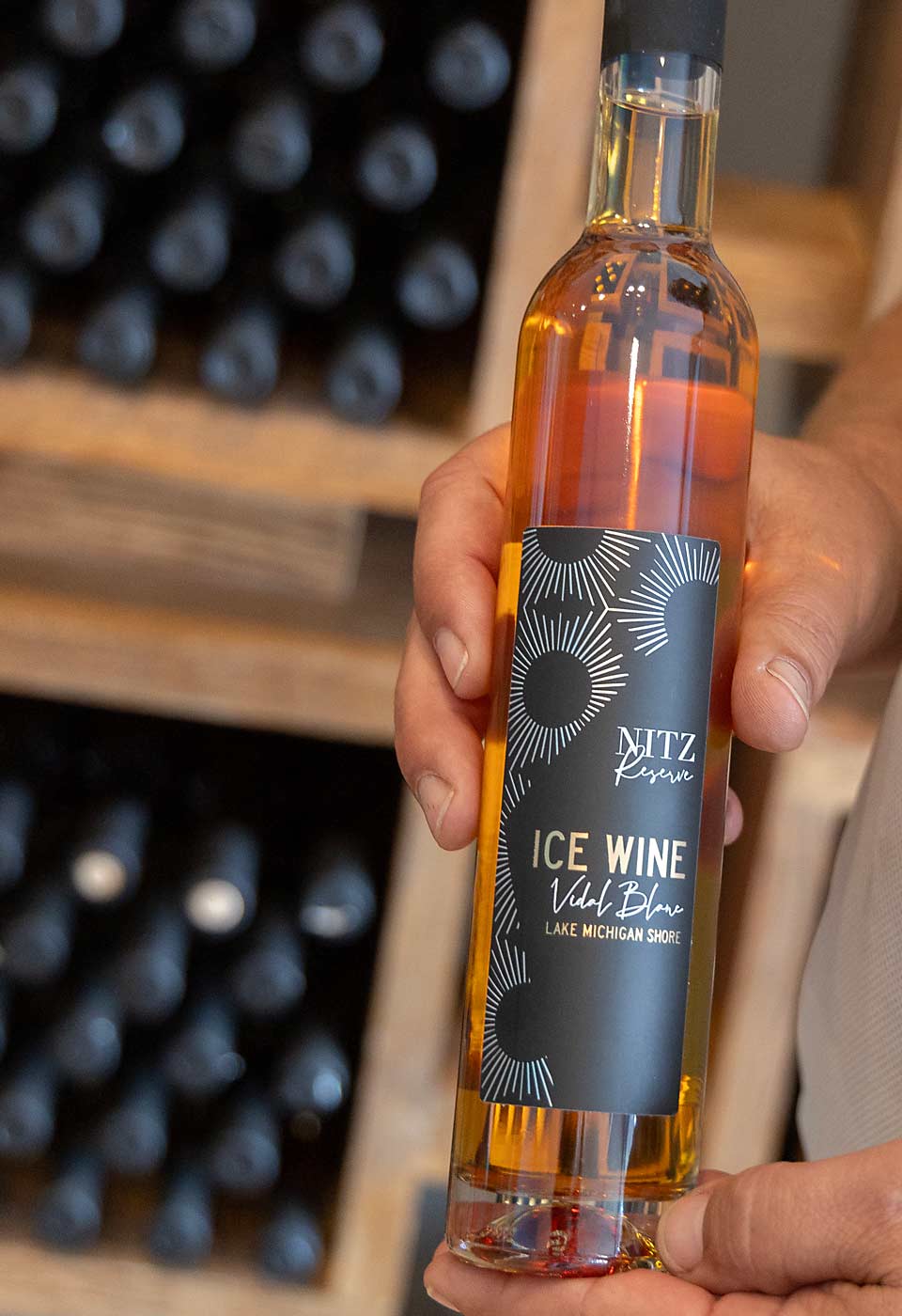
—by Matt Milkovich

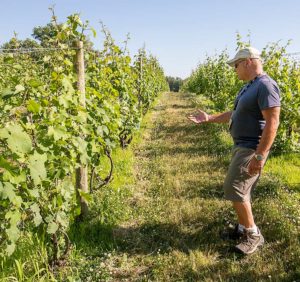






Leave A Comment